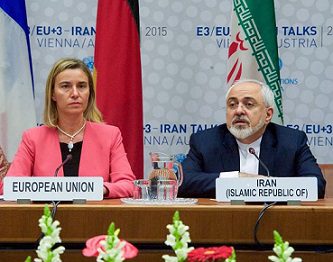
Iran and Europe: Towards a New Transatlantic Paradigm?
Moderator: Rouzbeh Parsi, Visiting Research Scholar, Sharmin and Bijan Mossavar-Rahmani Center for Iran and Persian Gulf Studies
May 2, 2019 · 4:30 pm—6:30 pm · 219 Aaron Burr
Sharmin and Bijan Mossavar-Rahmani Center for Iran and Persian Gulf Studies

The nuclear agreement with Iran is considered a signature success for the European Union – it validates the principle of multilateral diplomacy as a means of resolving dangerous international conflicts. It also constituted progress in the difficult work of non-proliferation of weapons of mass destruction. The US withdrawal from the agreement in May 2018 was intended to unravel the agreement and yet the remaining signatories insist on upholding it. In this regard the European Union plays a special role as it chairs the regular meetings of the signatories and is the partner Iran hoped would help revive its economy. Thus for both economic and political reasons the EU’s words and actions will significantly influence whether the nuclear agreement can survive despite the United States. For the EU the repercussions go beyond Iran and the nuclear agreement – it is also about its own long-term relationship with the United States and the world order they built together since the end of World War II.
There are several major questions at this junction: can the EU deliver enough trade and financial exchange with Iran to make Tehran continue to adhere to its commitments? Or will factional competition within Iran lead Tehran to withdraw as well? Will the risk of an armed conflict increase if the agreement collapses?
Co-sponsored by the European Union Program, Program in Contemporary European Politics and Society, Program in the History and Practice of Diplomacy, The Department and Program in Near Eastern Studies, and Liechtenstein Institute for Self-Determination















